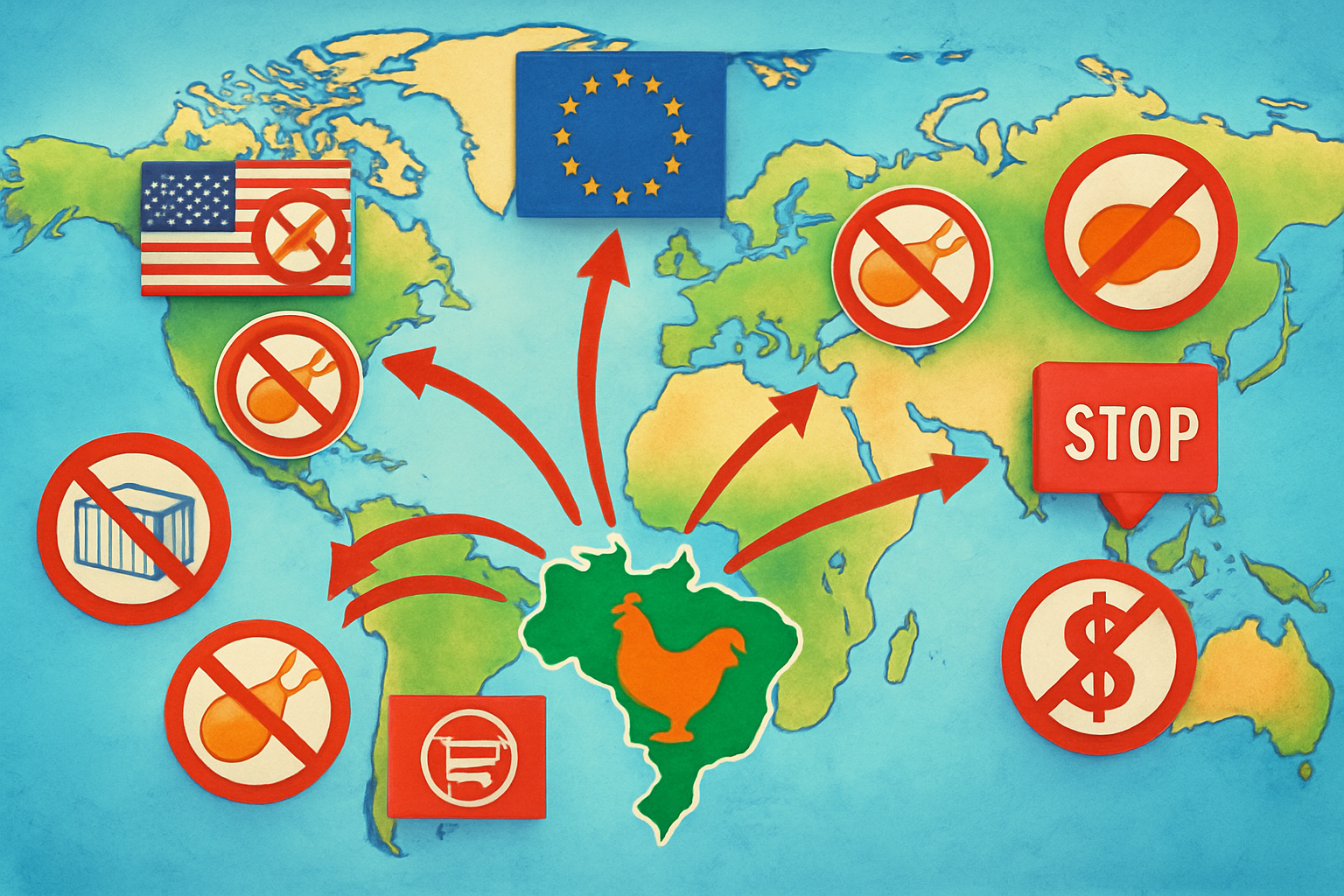Brazil’s flu outbreak affects exports
Brazil, the world’s largest exporter of chicken, has temporarily suspended poultry exports due to a confirmed case of avian flu in Rio Grande do Sul. This move, effective from July 18, has led major importers including China, Argentina, Chile, Mexico, Uruguay, the EU, Japan, and Saudi Arabia to halt Brazilian chicken imports.
China sees local supply boost
The export restrictions vary by country, with some banning all Brazilian poultry and others limiting the ban to products from the affected region. In total, 44 countries have imposed restrictions, according to Brazil’s agriculture ministry.
Export halt starts July 18
Despite the disruptions to global supply chains and trade, the impact on China’s poultry market is expected to be minimal. Industry experts suggest the suspension could actually benefit domestic Chinese producers by reducing competition and supporting higher prices, particularly for popular imports like chicken feet and wings.
Bans vary by destination country
In 2023, Brazil exported over 5.1 million tons of poultry—a 6.6% increase from the previous year. China is Brazil’s top buyer, with Brazilian frozen chicken wings and feet accounting for a large share of China’s total imports.
44 countries halt Brazilian imports
Analysts predict a short-term price surge for chicken by-products in China due to the supply gap and seasonal demand. Prices have already started climbing across the supply chain, with live chicken prices in Shandong and Hebei provinces rising by about 10% since early June.
China impact expected to be minimal
While the global market adjusts to this shift, domestic suppliers like China’s Sunner Group are ramping up production to meet demand. The full effects of Brazil’s export suspension are still unfolding, but the move is likely to reshape poultry trade dynamics in the short term.




